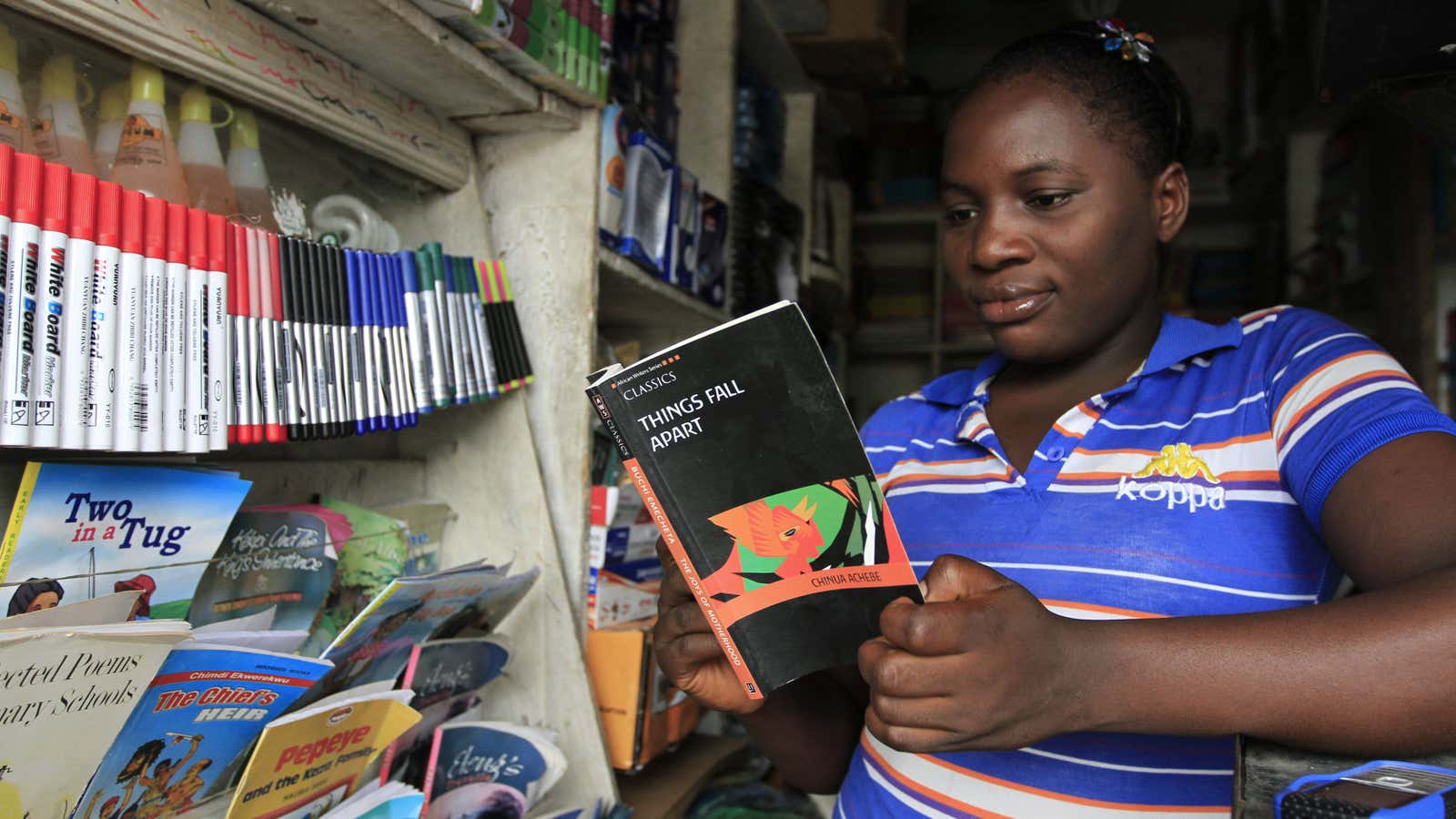Sino-African relations have garnered a great deal of public interest in recent decades. Commentary tends to focus on trade, economic investment, and aid, and is often negative in tone. But based on interviews I conducted in Benin in early 2015, culture is perceived as the most positive aspect of the Sino-African relationship. Cultural exchange is a crucial domain of interaction, and one in which China is investing heavily.
China has a growing ambition to become a major world cultural power and to compete with Western cultural influence. If China aims to counter the cultural hegemony of the West, the translation and exporting of its literature plays a vital role.
The export of its cultural products is key if China is to gain visibility on the global stage. In 2006 the Chinese government announced a strategic five-year plan for cultural development. Numerous projects were launched to promote China’s publication exports. The most well known of these is the China Book International program. This is sponsored by the government to sell its printed media abroad. As Chinese scholar Li Mingjiang has observed, the distribution of Chinese literature abroad is a tool for “cultivating a better image of China” and “correcting foreign misperceptions.”
To understand the dynamics of Sino-African cultural exchanges better we did a survey of Chinese literature available in translation across Africa. The results are far from exhaustive; they suggest that the strategy has had limited success. But they also highlight isolated cases that exemplify the potential for mutual enrichment.
The research suggests that the translation of Chinese literature in Africa primarily fulfills a ceremonial and diplomatic function. The ceremonies around book donations to African libraries are a key example. Much more needs to be done to generate meaningful cultural interaction and exchange.
Limited success so far
A great deal of translated Chinese literature comes from publishing houses in France, the UK, and the US, and not directly from China. The available literature is therefore generally in European languages—primarily English and French. UNESCO’s Index Translationum cites 2,331 translations from Chinese into English and 1,508 into French.
Filtering Chinese literature through Western intermediaries and languages determines which books are distributed in African countries. It also affects where the books end up; for example, many of the titles published in French are tucked away in the libraries of various Instituts Français in Francophone countries rather than in public libraries and bookshops.
There is also a noticeable shortage of translations into African languages. The index shows that, apart from a few translations into Arabic, there is not a single translation of a Chinese literary text into an African language. This excludes a wide range of African readers and creates a barrier to more direct intercultural dialogue between China and African countries.
One possible difficulty in increasing the number of translations is the lack of authors and translators with the necessary linguistic skills. Another major contributing factor is the lack of a developed print industry and availability of printed publications in many African countries.
Promising signs
One recent promising case demonstrates the potential benefits of meaningful cultural exchange. A collection of poetry by the award-winning Chinese poet Jidi Majia has recently been published in Kiswahili. The collection, Maneno Ya Moto Kutoka China, is heralded as the first creative work of Chinese literature to be translated into the lingua franca of Kenya, Tanzania and much of southeast Africa.
Jidi Majia is a prize-winning Chinese poet of the minority Yi nationality who claims an affinity with African writers. Choosing to translate a contemporary poet from a minority community in China might appear to be an unusual choice for a first publication in Kiswahili. The Chinese publisher said the decision was taken to ensure that the writings of a poet from a Chinese minority group can be seen by different peoples of different cultures.
This type of publication opens a window to Chinese culture for African people wishing to read in their native and national languages. African scholars also argue that publishing in Kiswahili and other African languages is important for enhancing adult literacy and combating the scarcity of reading material available in these languages.
No coherent strategy
Despite a few examples, the translation of Chinese literature into African languages remains extremely limited. Rather than being part of a coherent translation strategy, these projects depend on individual collaborations.
What might a coherent strategy look like? I would suggest that there should be efforts to build collaborations between Chinese and local African publishing houses without going via a European or Western intermediary. At the moment, these are rare. But they do begin to outline what meaningful relationships may look like. These relationships could engage the African literary community of editors, translators, and authors. At the same time China could gain a more direct line of access to a broad African readership.
This post originally appeared at The Conversation.
